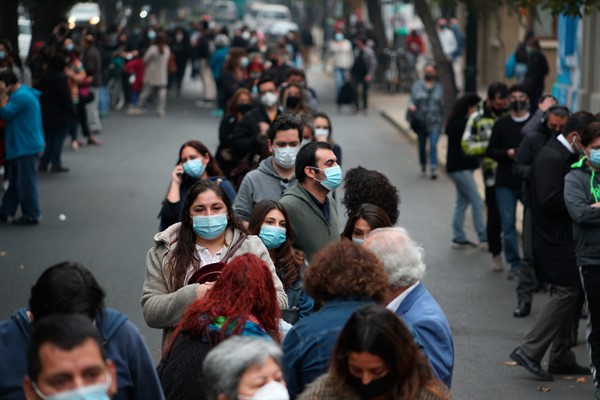SANTIAGO, Chile—Despite high numbers of COVID-19 infections and large segments of the population in quarantine, Chile held a crucial election on May 15 and 16. Voters selected 155 people to represent them in a constituent assembly charged with drafting a new constitution. Turnout, at roughly 43 percent, was not particularly high, though this is comparable with Chile’s long history of low electoral participation, and the pandemic likely depressed the number of those voting as well. In addition, three other elections were held simultaneously: for municipal council members, mayors and governors. This made the election process quite complex, because each vote had to be made with a different logic, selecting from very different electoral lists.
Exit polls and other evidence revealed that Chile’s longstanding pattern of unequal electoral participation has not dramatically changed, as wealthy Chileans were much more likely to vote last month than poorer ones. Nevertheless, the result of the constituent assembly election was a real political earthquake. Established political forces from both the left and right were punished. In fact, most of the candidates that received significant campaign donations were not selected, a break from the usual pattern in Chile, where more campaign funding has generally resulted in a greater chance of electoral success.
The list of candidates assembled by right-wing parties and backed by the current president, Sebastian Pinera, obtained only 37 seats, or 24 percent of the total. Given that the Constitutional Convention will require a two-thirds majority for its decisions, the right will have no veto power. This certainly represents a major defeat for Chilean conservatives, who, since the transition to democracy in 1989, have relied on several formal and informal institutions to amplify their political power. It is no wonder, then, that fear is widespread on the right, and an internal battle is gaining traction between two opposing rightist camps: those who advocate moderating and adapting to the current context, versus those in favor of taking radical positions and defending the status quo at any cost.

